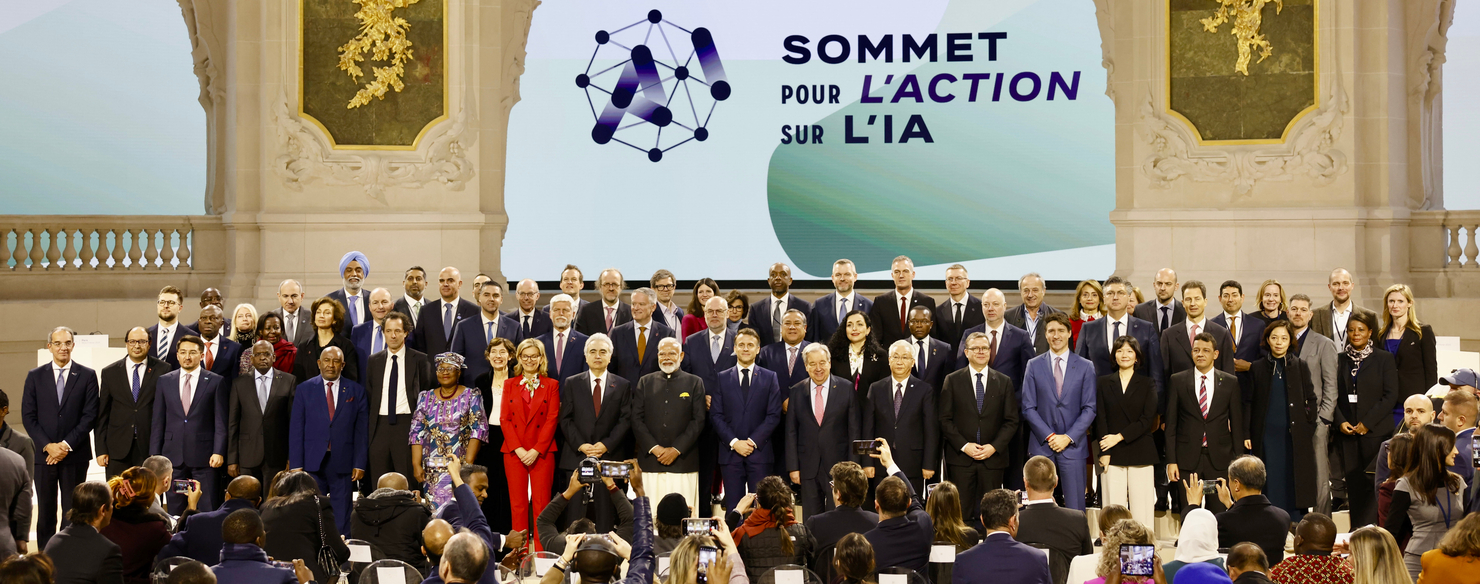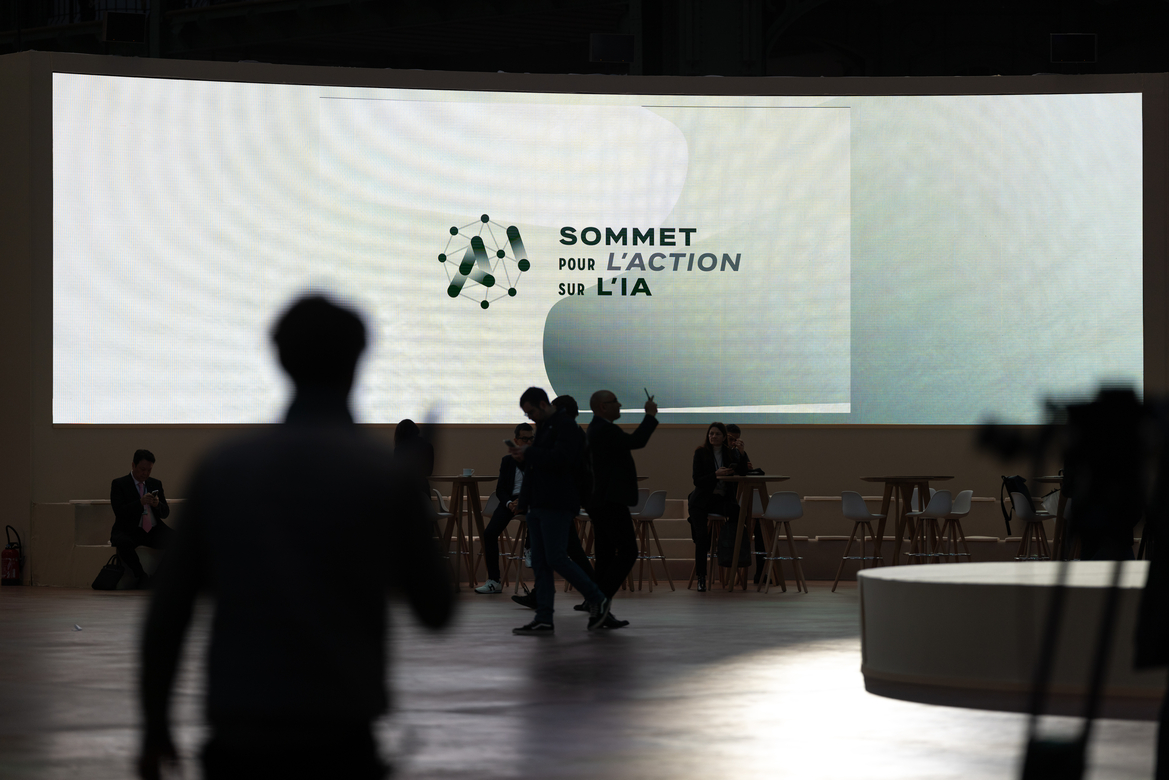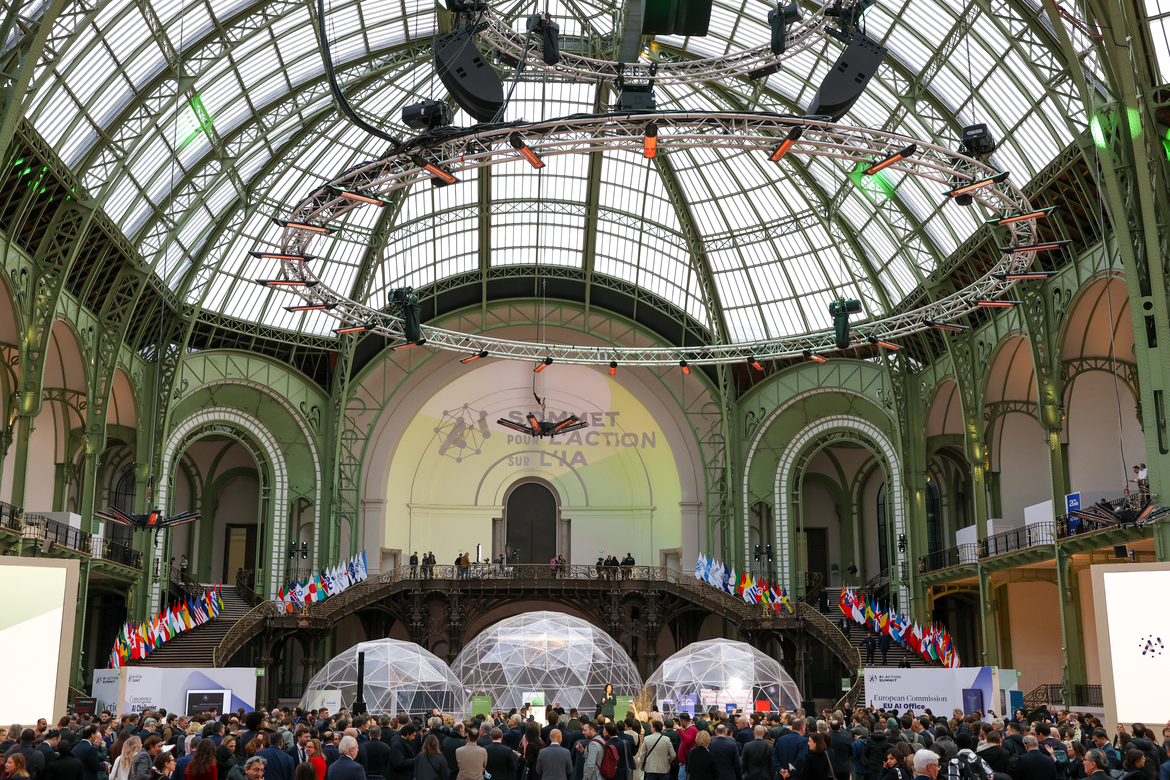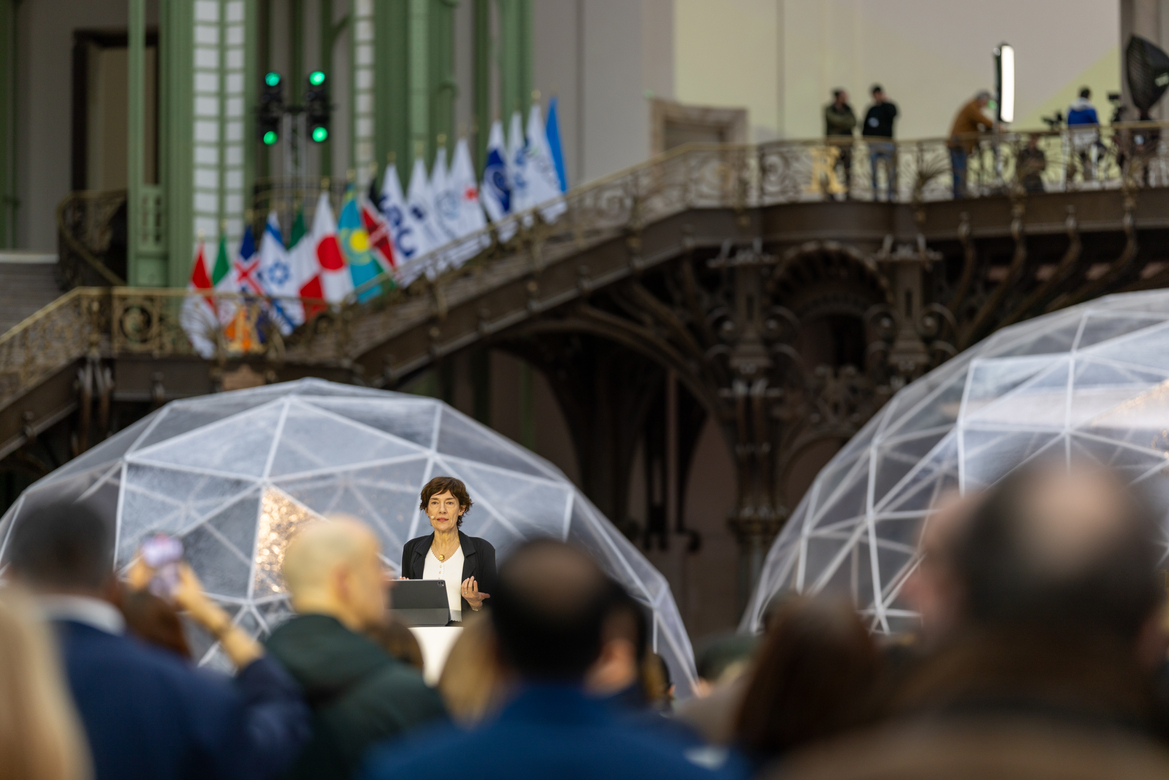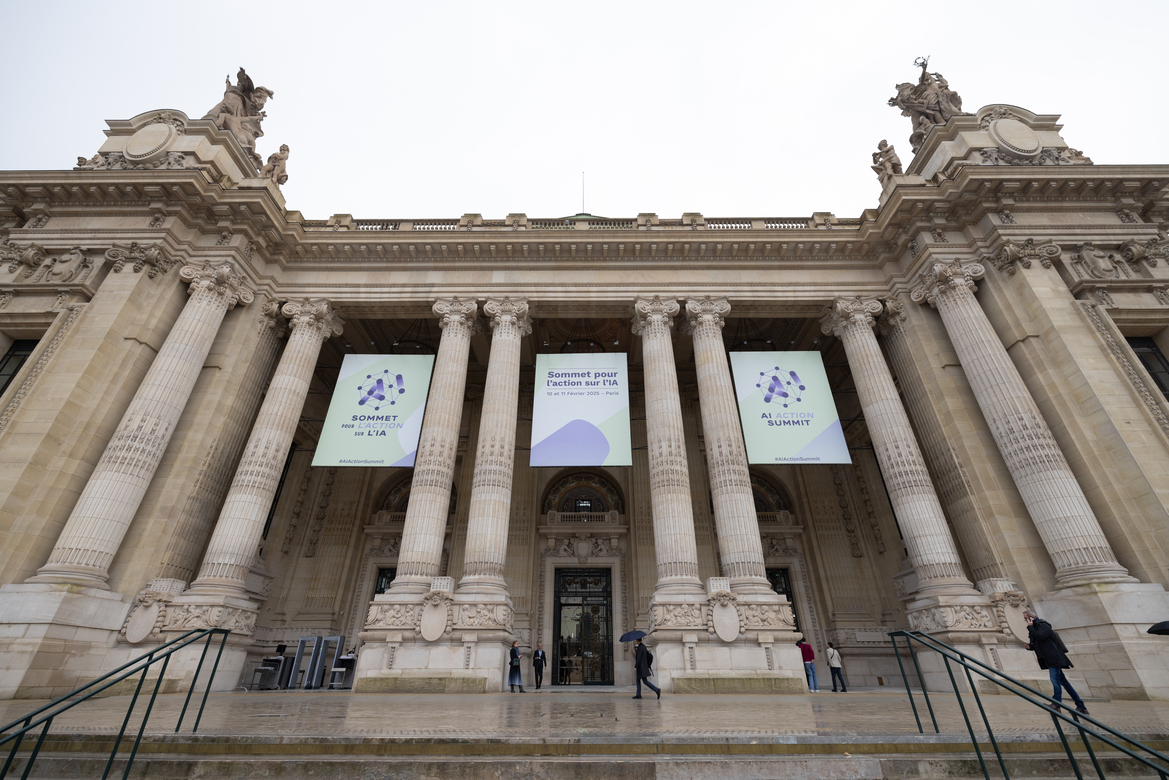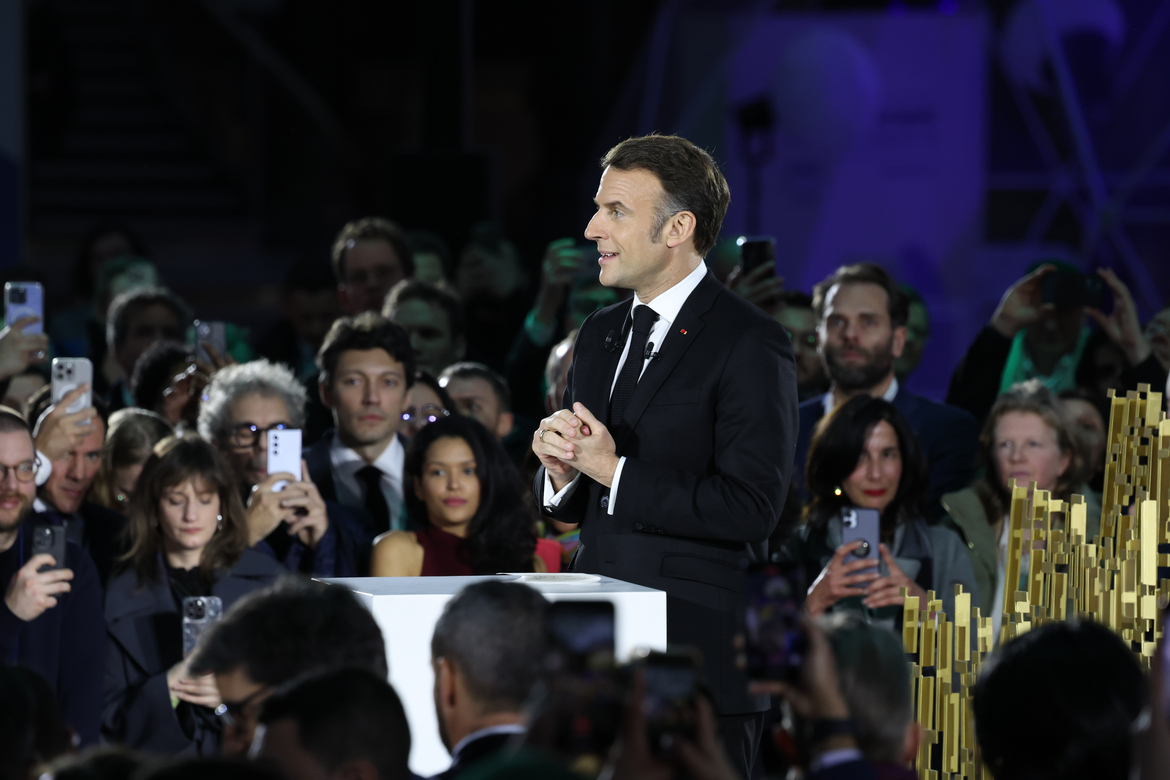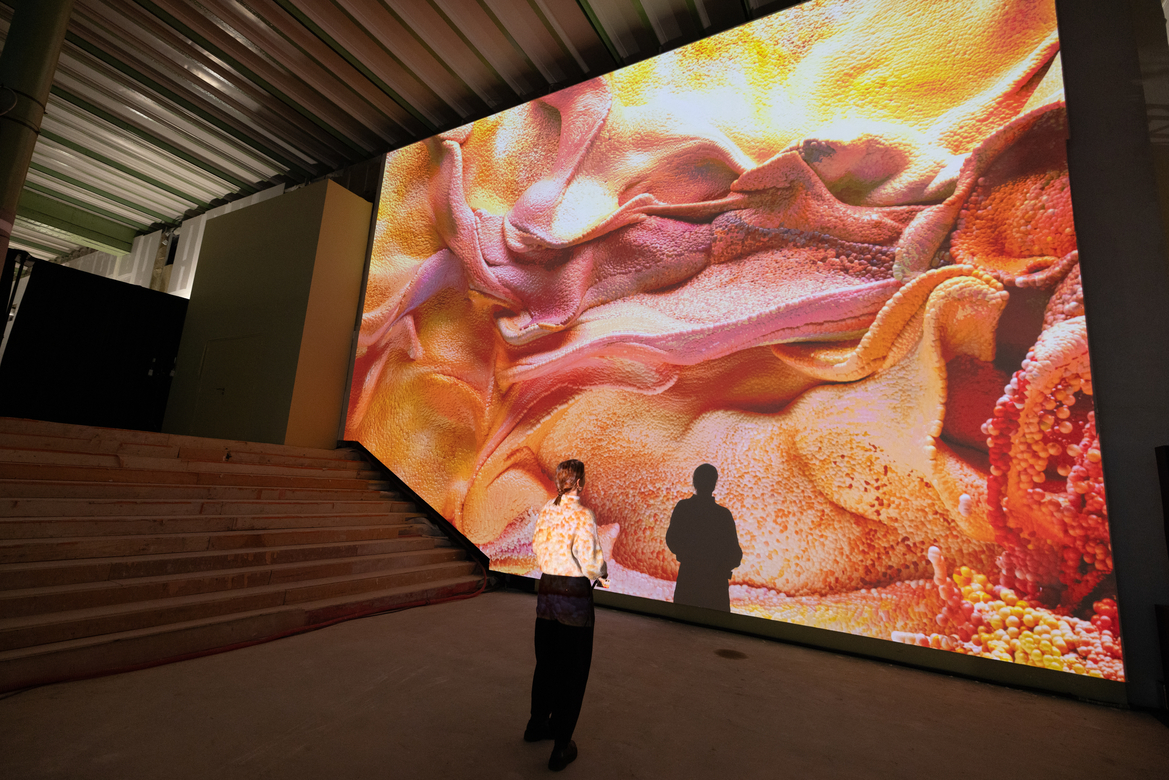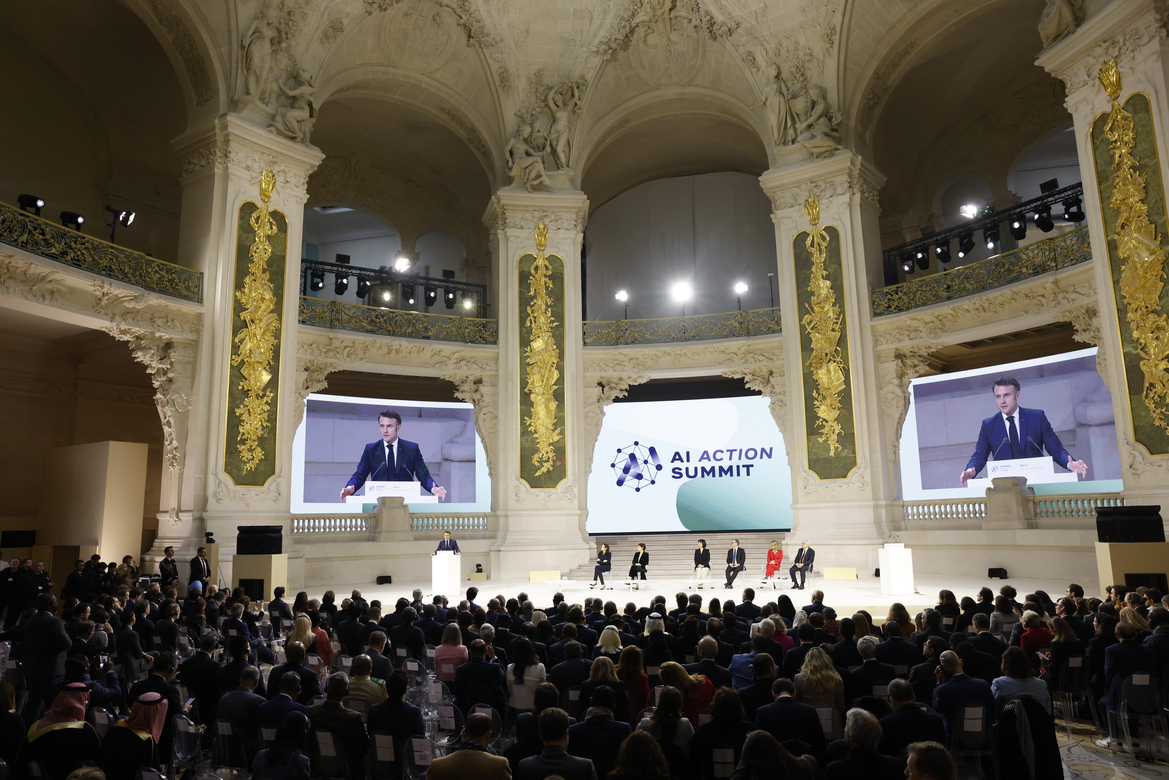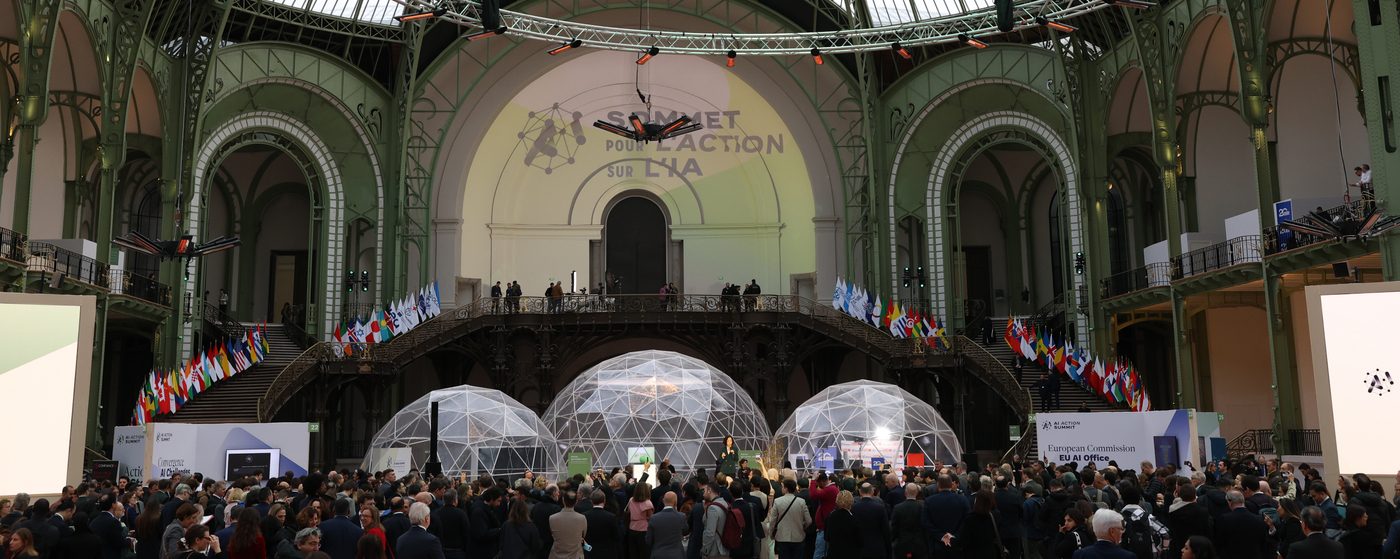For almost a week, from February 6 to 11, 2025, Paris hosted numerous events aimed at strengthening international action towards artificial intelligence serving the general interest. The week was punctuated by scientific days, a cultural weekend, an international summit at the Grand Palais, numerous parallel events, and a day for businesses.
Paris Actions for AI
Retour en images
